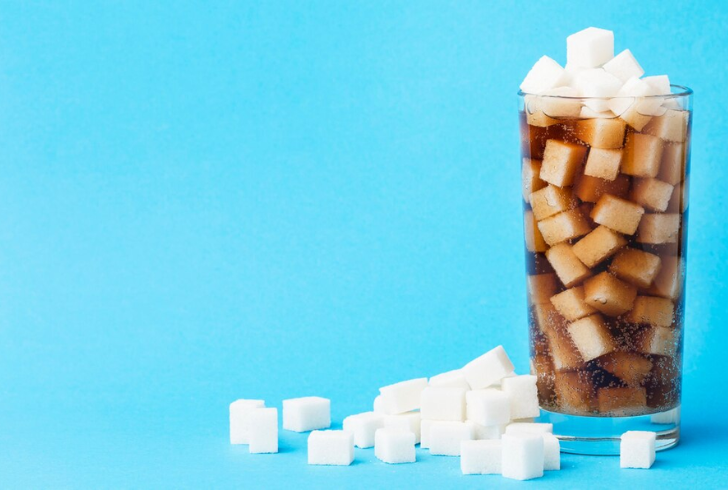Intermittent fasting has gained significant popularity in recent years as a method for weight loss, improved metabolism, and overall health benefits. However, there’s a pervasive question among fasting enthusiasts: Does diet soda break a fast?
Understanding Intermittent Fasting
Before delving into the impact of diet soda on fasting, it’s crucial to grasp the concept of intermittent fasting. This dietary approach involves alternating periods of eating and fasting, with the primary goal of promoting weight loss and enhancing metabolic health.
Types of Intermittent Fasting

Freepik | One popular intermittent fasting method involves eating normally for five days and restricting calories for the other two days.
There are several variations of intermittent fasting, including:
- 16/8 Method: Involves fasting for 16 hours and restricting eating to an 8-hour window.
- 5:2 Diet: Consists of eating normally for five days a week and restricting calorie intake on the remaining two days.
- Alternate-Day Fasting: Involves alternating between fasting days and non-fasting days.
Does Diet Soda Break a Fast?
The debate surrounding whether diet soda disrupts fasting stems from its artificial sweeteners and potential effects on insulin levels. Many proponents of fasting argue that consuming anything other than water during fasting periods can trigger metabolic responses that counteract the benefits of fasting.
Impact of Artificial Sweeteners
Artificial sweeteners, such as aspartame, sucralose, and stevia, are commonly used in diet sodas to provide sweetness without added calories. While these sweeteners are calorie-free and do not raise blood sugar levels, some studies suggest that they may still stimulate insulin secretion.

Freepik | Commonly used artificial sweeteners like aspartame, sucralose, and stevia add sweetness to diet sodas without extra calories.
Insulin Response and Fasting – Insulin is a hormone responsible for regulating blood sugar levels by facilitating the uptake of glucose into cells. During fasting, insulin levels typically decrease, allowing the body to burn stored fat for energy. However, consuming artificial sweeteners, even without calories, could potentially trigger an insulin response, disrupting the fasting state.
Research on Diet Soda and Fasting
Studies investigating the effects of diet soda on fasting are limited and inconclusive. Some research suggests that consuming diet soda during fasting periods may have minimal impact on metabolic markers such as insulin and blood sugar levels. However, more extensive studies are needed to fully understand the implications.
Individual Variability – It’s essential to recognize that individual responses to diet soda during fasting may vary. Factors such as genetics, metabolic health, and overall dietary habits can influence how the body responds to artificial sweeteners and their potential effects on fasting.
Practical Considerations for Fasting with Diet Soda

Freepik | Choose water, herbal tea, or black coffee for hydrating, calorie-free options during fasting.
While the scientific evidence regarding diet soda and fasting is still evolving, individuals practicing intermittent fasting may consider the following practical tips:
- Moderation: If you choose to consume diet soda during fasting periods, do so in moderation and consider its potential impact on your fasting goals.
- Alternative Options: Opt for water, herbal tea, or black coffee as hydrating and calorie-free alternatives during fasting periods.
- Listen to Your Body: Pay attention to how your body responds to diet soda during fasting and adjust accordingly based on your individual experience.
Finding Balance in Fasting Practices
The question of “does diet soda break a fast” remains a topic of debate within the fasting community. While some evidence suggests that artificial sweeteners in diet soda may have minimal impact on fasting, further research is needed to fully understand their effects on metabolic health.
As with any dietary practice, finding balance and listening to your body’s cues are essential when incorporating diet soda into fasting routines. By making informed choices and prioritizing overall health and well-being, individuals can optimize their fasting experience while enjoying occasional indulgences like diet soda.
